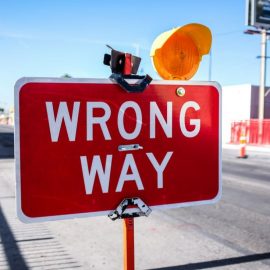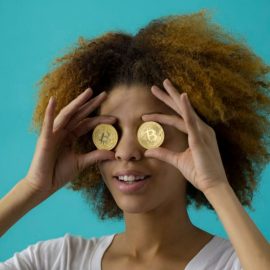

This article is an excerpt from the Shortform book guide to "The Paradox of Choice" by Barry Schwartz. Shortform has the world's best summaries and analyses of books you should be reading.
Like this article? Sign up for a free trial here .
Do you ever feel overwhelmed when you’re hungry but can’t decide what to eat? Or you’re bored but can’t choose something to watch? Why does having too many choices stress people out this way?
This is exactly the dilemma that Barry Schwartz explores in his book The Paradox of Choice. Schwartz says that it takes time and energy to make decisions and, when we have to deliberate every decision extensively, we get worn out and sometimes become unable to process even simple decisions.
Continue reading to learn about the negative consequences of living in a world with expanded choices.
The Paradox of Expanded Choice
When faced with numerous choices in each of the three categories (consumer, complex, and personal), Schwartz argues that we become overwhelmed and depleted. Besides making us unhappy, this leads us to prioritize our choices poorly, potentially spending time and energy on inconsequential decisions without giving ourselves space to consider more important choices.
Schwartz identifies two ways we make decisions: deliberately and unconsciously. Deliberate choices are those we actively think about, and unconscious choices are those we make automatically.
Think about the routines you go through every day—for example, the steps involved in getting ready for work or getting your children ready for school. Even though every step is technically a decision, you do them on autopilot. If you thought deliberately about every decision you made in your morning routine, you’d wear yourself out by the time you got to work.
Our ability to make some choices unconsciously allows us the energy and time to consider the decisions we must make deliberately. However, the expansion of choice in market democracies presents us with more deliberate choices than we might be able to handle.
Making so many small decisions lessens our mental capacity to make more important ones. Schwartz cites economist Fred Hirsch, who calls this phenomenon the “tyranny of small decisions”: The cumulative effect of these inconsequential decisions is a heavy mental load that controls us, contradicting the idea that we’re in control when we make constant choices in every aspect of our lives.
Schwartz describes a study called “When Choice is Demotivating” that showed how tiring expanded choice can be. Researchers set up a display of jams, with free samples available. Customers who decided to buy a jar were given a $1-off coupon. One scenario offered six varieties for tasting and another scenario, 24. In the six-samples scenario, 30% bought a jar, but in the 24-sample scenario, only 3% bought one. Since choosing among 24 jams takes much more effort than choosing among six, many people elected to save their energy and not choose at all among the 24 varieties.
When we waste energy on choices (like jam) that should be easy to make, it’s harder to make more important decisions about things like education or marriage. Schwartz contends that we often don’t recognize this as a problem because of how highly our market democracy values freedom of choice.
Understanding that we face too many choices to process, and that many of these decisions don’t have much impact on our lives can help us to prioritize the choices that matter and brush aside the ones that don’t.
| Can Expanded Choice Have Positive Effects? Some researchers have come to opposite conclusions about the consequences of expanded consumer choice, arguing that instead of overwhelming us, it helps us to clarify what we really want. A group of psychologists and economists repeated the jam study numerous times and weren’t able to replicate the results. After conducting 10 similar experiments where subjects were made to choose among either limited or expanded options, the researchers found no correlation between expanded choice and difficulty of decision-making. Instead, they found that offering many choices doesn’t have much of an impact on decision-making either way. Another researcher found that when people had only one option, they were less likely to make a decision than when they had multiple options. He concluded that stores shouldn’t limit people’s options. (The research didn’t address the idea that there may be a “sweet spot” at which people feel they have enough options to choose from without being overwhelmed by too many choices.) These studies seem to contradict Schwartz’s main findings about the stress expanded choice can cause: If having many choices has either no effect or a positive effect, then it’s not a problem that needs to be fixed. However, Schwartz has responded to these claims by arguing that, while some studies have indicated that expanded choice can have a positive effect, numerous other studies published since The Paradox of Choice have indicated negative effects. He also notes that some stores that have reduced options have seen increased business. So while expanded options might not have a negative impact in some situations, evidence suggests that they can cause negative consequences in others. |

———End of Preview———
Like what you just read? Read the rest of the world's best book summary and analysis of Barry Schwartz's "The Paradox of Choice" at Shortform .
Here's what you'll find in our full The Paradox of Choice summary :
- Why the more choices we have, the more stressed and indecisive we feel
- How to better navigate our choices, from groceries to health insurance
- Whether it's better to seek the best or accept "good enough"






